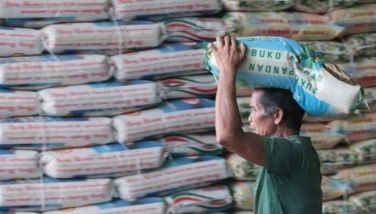Coffee exports surge 124% to $3.20M in H1

August 12, 2005 | 12:00am
Philippine coffee exports continued to post strong growth in the first half of the year due to strong demand and relatively high prices in the global market.
According to the International Coffee Organization Coordinating Agency (ICOCA), an agency under the Department of Trade and Industry (DTI), the country’s coffee exports amounted to $3.20 million in the first half of 2005, a dramatic increase of 124 percent over the same period last year.
The first semester export figures are already more than 80 percent of the $3.834 million worth of coffee exports recorded for the whole of 2004.
According to Senior Trade Undersecretary Thomas Aquino, "the growth of coffee exports can be attributed to the country’s efforts to tap niche markets and the good prices of coffee in the domestic and world markets."
" Government efforts are now geared towards the promotion of exotic and gourmet coffees," Aquino added.
Recently, the country shipped about $21,600 worth of exotic Civet and gourmet Arabica coffee to Japan.
Soluble/instant coffee accounted for 98 percent of total coffee exports in the first half of the year.
Japan accounts for about 70 percent of the country’s soluble/instant coffee exports.
"We are happy to note that the bulk of our exports are value-added coffee products. Products with high value added have more local content, which create more jobs and generate more foreign exchange for our country," Aquino said.
Raw coffee beans exports, on the other hand, cornered 1.5 per cent of the country’s total coffee shipments.
The Sultanate of Oman, Japan, and China are the main markets of raw coffee beans.
Coffee prices ranged from P50 per kilogram to as high as P72 per kilogram for the period March to June this year. Records show that the last time exporters experienced these price levels were in 1987 to 1989 before the London-based International Coffee Organization suspended world coffee prices due to supply glut.
Over-supply affected the fluctuation of coffee prices for one and a half decade.
Coffee is a major agricultural product in some parts of the country, including Cavite, Batangas, and the Cordillera region. About 200,000 people, most of whom farmers, are dependent on the coffee industry for livelihood.
The remaining are employed by processors of soluble/instant coffee, millers, traders, and shippers.
According to the International Coffee Organization Coordinating Agency (ICOCA), an agency under the Department of Trade and Industry (DTI), the country’s coffee exports amounted to $3.20 million in the first half of 2005, a dramatic increase of 124 percent over the same period last year.
The first semester export figures are already more than 80 percent of the $3.834 million worth of coffee exports recorded for the whole of 2004.
According to Senior Trade Undersecretary Thomas Aquino, "the growth of coffee exports can be attributed to the country’s efforts to tap niche markets and the good prices of coffee in the domestic and world markets."
" Government efforts are now geared towards the promotion of exotic and gourmet coffees," Aquino added.
Recently, the country shipped about $21,600 worth of exotic Civet and gourmet Arabica coffee to Japan.
Soluble/instant coffee accounted for 98 percent of total coffee exports in the first half of the year.
Japan accounts for about 70 percent of the country’s soluble/instant coffee exports.
"We are happy to note that the bulk of our exports are value-added coffee products. Products with high value added have more local content, which create more jobs and generate more foreign exchange for our country," Aquino said.
Raw coffee beans exports, on the other hand, cornered 1.5 per cent of the country’s total coffee shipments.
The Sultanate of Oman, Japan, and China are the main markets of raw coffee beans.
Coffee prices ranged from P50 per kilogram to as high as P72 per kilogram for the period March to June this year. Records show that the last time exporters experienced these price levels were in 1987 to 1989 before the London-based International Coffee Organization suspended world coffee prices due to supply glut.
Over-supply affected the fluctuation of coffee prices for one and a half decade.
Coffee is a major agricultural product in some parts of the country, including Cavite, Batangas, and the Cordillera region. About 200,000 people, most of whom farmers, are dependent on the coffee industry for livelihood.
The remaining are employed by processors of soluble/instant coffee, millers, traders, and shippers.
BrandSpace Articles
<
>
- Latest
- Trending
Trending
Latest
Trending
Latest
Recommended































